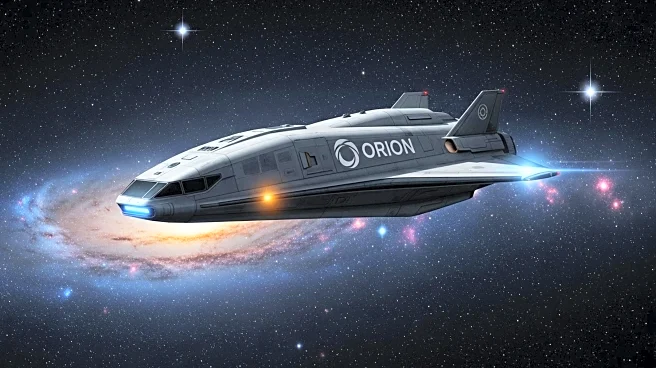What is the story about?
What's Happening?
Lockheed Martin has announced a collaboration with BioAstra to study the feasibility of a private astronaut mission using the Orion spacecraft. This initiative, revealed at the International Astronautical Congress, aims to conduct biomedical research beyond Earth's orbit. The mission, named Twin Astra, is inspired by NASA's Twins Study, which compared the physiological and molecular changes experienced by astronaut Scott Kelly during his time on the International Space Station with those of his twin brother, Mark Kelly, who remained on Earth. The study is in its early stages, with BioAstra seeking financial support from private investors and companies interested in licensing research results. Lockheed Martin views this as an opportunity to explore the requirements for conducting Orion missions for non-NASA customers.
Why It's Important?
This development signifies a potential shift in space exploration, where private entities could play a more significant role. By offering Orion as a service, Lockheed Martin could open new avenues for commercial space missions, potentially reducing costs and increasing access to space. This move aligns with NASA's policy changes and could lead to a broader space economy, with countries and private organizations participating in lunar and deep space missions. The collaboration with BioAstra could also advance biomedical research, providing insights into human health in space, which is crucial for long-term space exploration and habitation.
What's Next?
Lockheed Martin plans to phase in a services model for Orion, transitioning from traditional NASA contracts to a more commercial approach. This includes discussions with NASA about transferring some responsibilities, such as spacecraft servicing and recovery, to Lockheed. The company is also exploring technical changes to the Orion service module and alternative launch strategies. While NASA is expected to remain the primary customer, Lockheed anticipates interest from other countries and private entities. The timeline for these developments is linked to the Artemis missions, with a full service model expected around the Artemis 6 timeframe.
Beyond the Headlines
The shift towards a service model for Orion could have broader implications for international collaboration in space exploration. The involvement of the European Space Agency and Airbus Defence and Space in discussions about the service module highlights the potential for multinational partnerships. Additionally, the success of this model could accelerate the development of a lunar and deep space economy, fostering innovation and competition in the space industry. Ethical considerations, such as the commercialization of space and the equitable distribution of benefits, may also arise as private missions become more common.

















